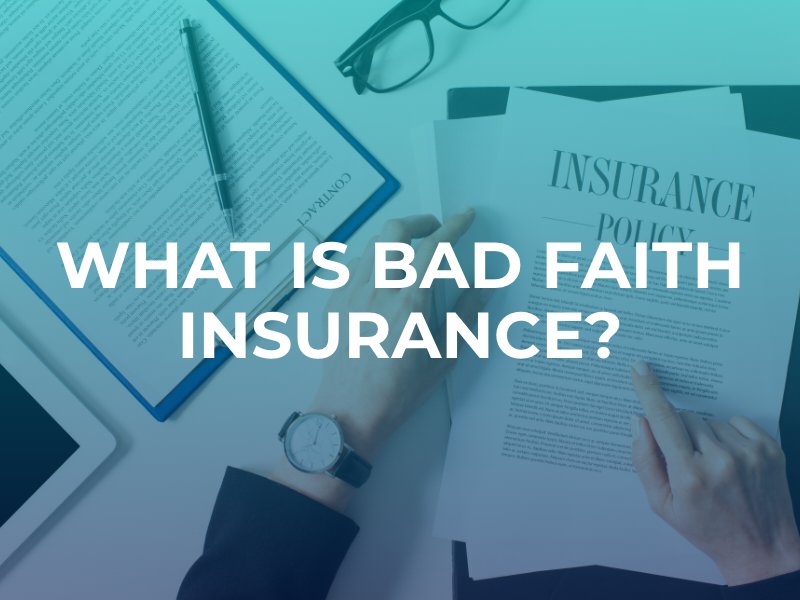What is Bad Faith Insurance?
When you purchase an insurance policy, you should be able to count on the insurance carrier to pay out valid claims. Unfortunately, there are times when insurance carriers refuse to abide by the terms of a contract. Yes, there are legitimate reasons for claims to be denied sometimes, but there are also times when insurance carriers operate in bad faith. Here, we want to discuss what that means and what you can do if this happens to you.

What is Defined as Bad Faith Insurance in Georgia?
When we examine Georgia statute O.C.G.A. § 33-4-6, we can see that insurance carriers have a duty to operate in good faith and fair dealings with policyholders. This means that if a person signs an agreement with the insurance carrier and pays their premiums, the insurance carrier is responsible for upholding their end of the deal, which means a prompt investigation of claims and payouts for valid claims.
There are various ways that an insurance carrier in this state can operate in bad faith. This includes, but is not limited to, the following:
- Failing to adequately or promptly investigate a claim
- Failing to respond to evidence submitted by the policyholder
- Unreasonably low settlement offers
- Making threatening statements toward a policyholder
- Misrepresenting the terms of the insurance policy
- Unreasonably denying benefits
- Attempting to convince the policyholder not to hire an attorney
In Georgia, insurance carriers could be found guilty of operating in bad faith under a few circumstances. In order for a person to prevail with a bad faith claim, they will have to prove that:
- The claim is indeed covered under the policy
- The insurance carrier refused to pay the claim within 60 days of a demand for payment prior to the lawsuit
- The insurance carrier’s failure to pay was motivated by “bad faith”
If the policyholder can prove that an insurance carrier operated in bad faith in this state, they may be entitled to various types of compensation. First, they will be entitled to full payment of the initial claim. The policyholder can receive an additional 50% of the claim value on top of what they already received, as well as attorney’s fees.
Working With a Bad Faith Attorney in Georgia
It is crucial for any person who believes their insurance carrier has dealt with them in bad faith to work with an attorney as soon as possible. One of the most challenging aspects of proving bad faith is understanding that insurance carriers often use tactics to limit how much money they pay in a settlement. In many cases, there are legitimate reasons for a claim delay or denial that do not revolve around bad faith. It will be up to an attorney to determine whether or not the actions of an insurance carrier are “typical” or done in bad faith.
An Atlanta personal injury lawyer will be the one to examine your claim denial, and they will also conduct a full investigation into the original incident. The goal is to go into negotiations with an upper hand and be ready to take the case to trial if necessary.